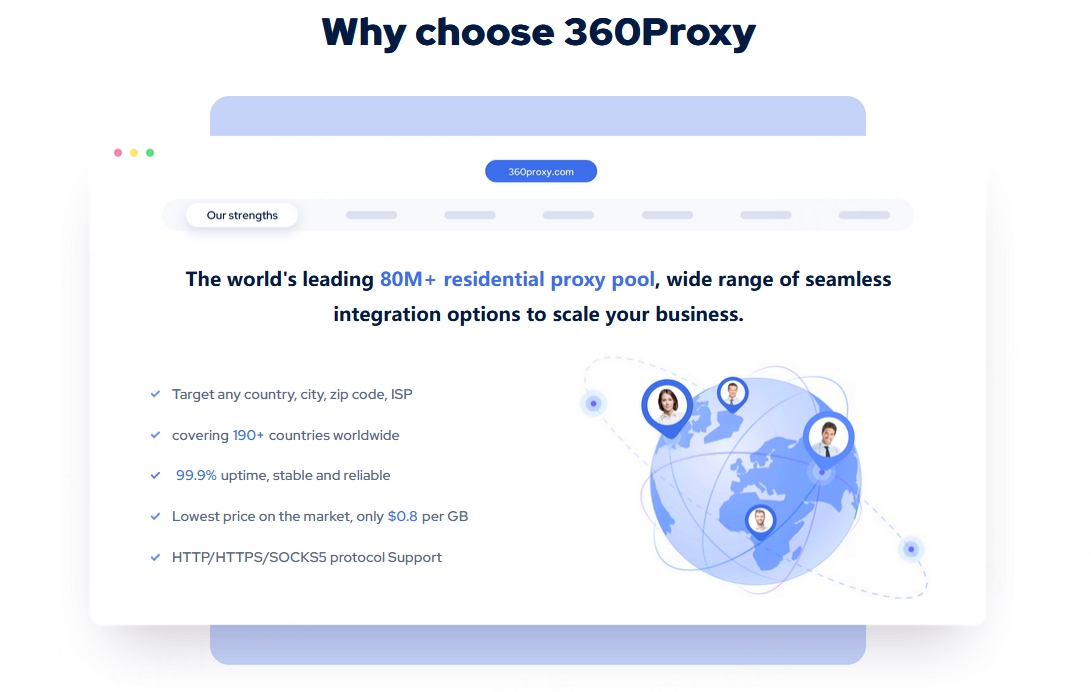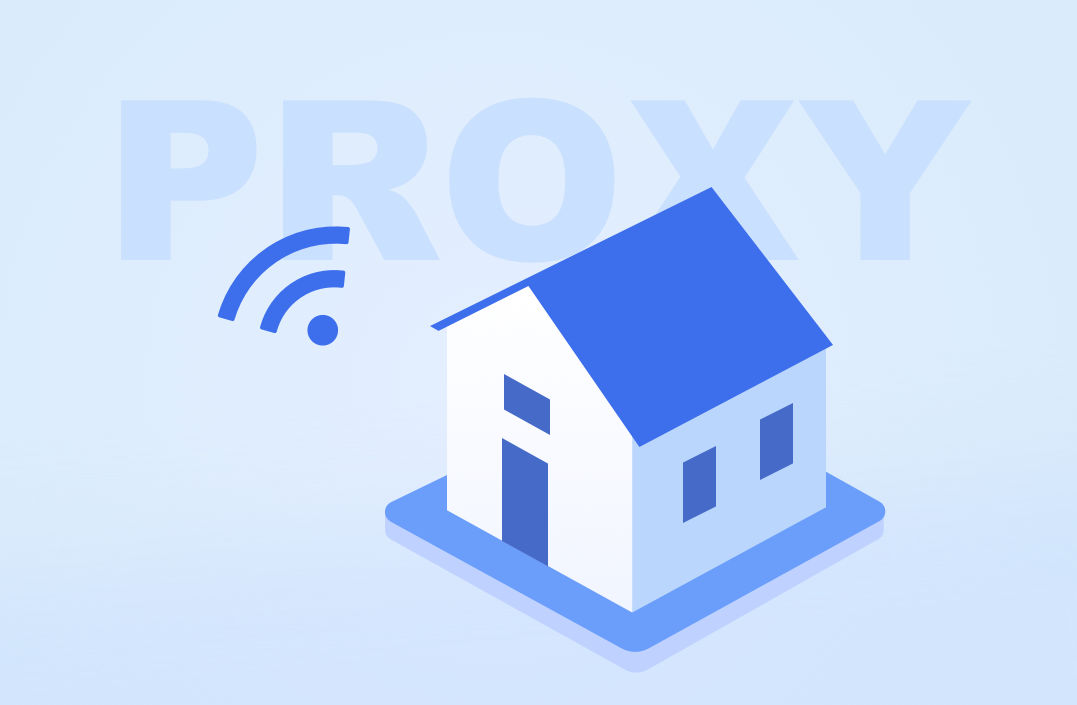When it comes to residential proxies, you may think of data center proxies, residential proxies, rotating proxies, etc.; but want to know what a residential proxy is? What are the suitable applications for residential proxies? You may not know this, but the article below will introduce you to residential proxies!
If you want to understand residential proxy, you need to first understand the origin of residential proxy!
What was the predecessor of residential proxy?
Residential proxies originate from proxy servers.The function of the proxy server is to obtain network information on behalf of network users. To put it figuratively, it is a transfer station for network information and an intermediary proxy between personal networks and Internet service providers. It is responsible for forwarding legal network information, controlling and registering the forwarding.
As a bridge connecting the Internet and Intranet, the proxy server plays an extremely important role in practical applications. It can be used for multiple purposes. The most basic function is connection. In addition, it also includes security, caching, content filtering, access control management, etc. Function. More importantly, the proxy server is an important security function provided by the Internet link-level gateway. It works mainly at the conversation layer of the Open Systems Interconnection (OSI) model.
As time goes by, proxy servers come in different types, including residential proxies and data center proxies, which are the two most popular types of proxies. Therefore, it is crucial to understand their different functions.
How does residential proxy work and what are its pros and cons?
A residential proxy is a proxy server hosted on an Internet service provider's network and given an IP address. Residential proxy servers hide a user's true IP address, making it appear that the user is accessing a service or website through the proxy server's IP address rather than their true location. Residential proxy servers are more secure than other types, such as those within a data center, because they are harder to detect and block.
advantage:
1. Stable and reliable: Pure residential IP proxies are usually provided by proxies and have a stable and reliable network environment and uninterrupted service guarantee. Network bottlenecks or network failures are not prone to occur when using the proxy network.
2. High-quality IP address: Pure residential IP proxy uses real home broadband network access, and is not subject to the risk of being blocked by the data center IP pool. It is not easily recognized as a proxy IP by the target website, so the probability of being blocked is small. The data collection effect will be better.
3. Strong concealment: Pure residential IP proxy uses real home broadband network access, and its IP address is no different from the real user’s IP address. Compared with other types of proxy IP, it is more difficult to be detected and intercepted by the target website. It has Better concealment.
shortcoming:
1. Higher cost: Compared with other types of proxy IP, the cost of pure residential IP proxy is higher because it requires real home broadband network access, and maintenance and updates require more energy and time.
2. Small supply: Compared with data center IP pools, the supply of pure residential IP proxies is very limited and is not suitable for large-scale data collection or high-concurrency request scenarios.
3. Some IP addresses may be blocked: Some target websites may block specific broadband IP addresses, causing the proxy IP to become invalid. However, the IP address of a pure residential IP proxy is no different from the IP address of a real user.
How does data center proxy work, its advantages and disadvantages?
A data center proxy is a type of IP address-based proxy that replaces the user's real IP address by transmitting user requests to and from a data center server. During this process, data center proxies often use multiple IP addresses to send requests in turn to avoid detection of proxy behavior by the target website.
advantage:
1. High speed and stability: Data center proxies use high-speed network connections and dedicated hardware, usually providing faster and more stable services.
2. Privacy protection: The data center proxy can hide the user's real IP address, thereby improving the user's privacy protection level. 3. Scalability: Since the data center can provide a large number of servers, the data center proxy can easily expand and add more servers to handle more requests.
shortcoming:
1. Easily detected: Since the IP addresses used by data center proxies are usually static and dedicated, the proxy behavior is easily detected by the target website.
2. Trust issue: Since data center proxies are usually provided by third parties, users need to trust these third parties to protect their privacy and data security, so they need to choose a trustworthy proxy provider.
3. May be blocked: Since the data center proxy IP addresses are easily detected by the target website, these IP addresses may be blocked by the target website, thus affecting the effectiveness of the proxy.

All in all, residential proxies and data center proxies have their own characteristics. If you are looking for high security, reliability, and privacy, choose a residential proxy; 360Proxy is a professional residential proxy that provides real residential proxy address services; and obtains 99% The proxy IP connection has a high success rate, so your real IP is always hidden; and the minimum is only 0.07$/IP.
 Username: Password
Username: Password
 Whitelist IP
Whitelist IP
 Proxy Manager
Proxy Manager
 Google Chrome Extension
Google Chrome Extension





























 Dashboard
Dashboard Sign Out
Sign Out






























 USA
USA France
France Brazil
Brazil Vietnam
Vietnam Spain
Spain









